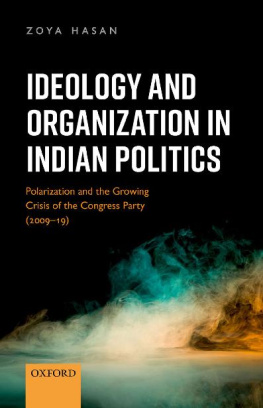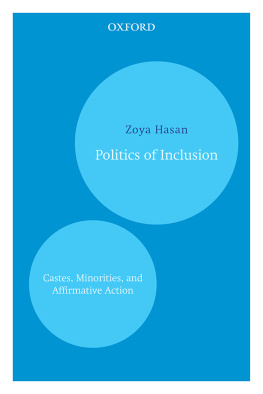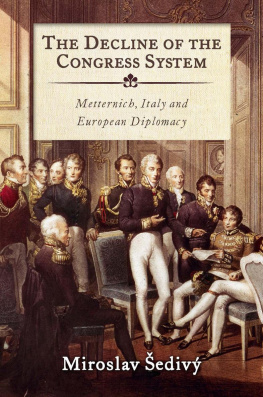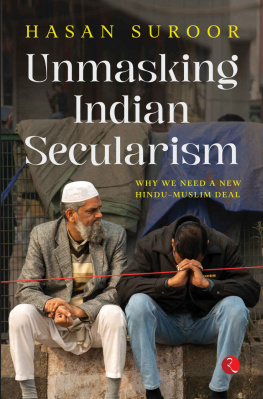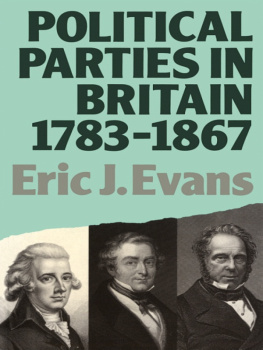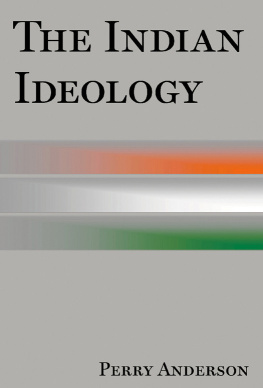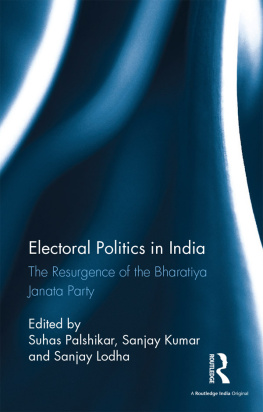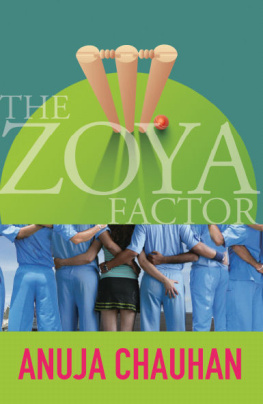Ideology and Organization in Indian Politics
Ideology and Organization in Indian Politics
Polarization and the Growing Crisis of the Congress Party (200919)
ZOYA HASAN
Great Clarendon Street, Oxford, ox2 6dp,
United Kingdom
Oxford University Press is a department of the University of Oxford. It furthers the Universitys objective of excellence in research, scholarship, and education by publishing worldwide. Oxford is a registered trade mark of Oxford University Press in the UK and in certain other countries
Oxford University Press 2022
The moral rights of the author have been asserted
First Edition published in 2022
Impression: 1
All rights reserved. No part of this publication may be reproduced, stored in a retrieval system, or transmitted, in any form or by any means, without the prior permission in writing of Oxford University Press, or as expressly permitted by law, by licence or under terms agreed with the appropriate reprographics rights organization. Enquiries concerning reproduction outside the scope of the above should be sent to the Rights Department, Oxford University Press, at the address above
You must not circulate this work in any other form and you must impose this same condition on any acquirer
Published in the United States of America by Oxford University Press
198 Madison Avenue, New York, NY 10016, United States of America
British Library Cataloguing in Publication Data
Data available
Library of Congress Control Number: 2022931627
ISBN 9780192863416
eISBN 9780192678188
DOI: 10.1093/oso/9780192863416.001.0001
Links to third party websites are provided by Oxford in good faith and for information only. Oxford disclaims any responsibility for the materials contained in any third party website referenced in this work.
For Mushir
Contents
A sea-change has taken place in Indian and global politics in the decade since my book Congress After Indira: Policy, Power, Political Change (19842009) was published. That book focussed on the comeback of the Congress party after the unexpected victory in the 2004 elections. It was a story of political recovery. But it is now clear that the political revival was transitory. The two staggering defeats in 2014 and 2019 have brought the dire state of the Congress party to the front and Centre of public debate. This book seeks to understand the reasons for these enormous changes by looking, first, at the underlying conditions that led to the steep decline of the Congress and, second, the challengesboth external and internalconfronting the Congress and, while doing so, estimating its impact on Indian politics.
The central question is what accounts for these changes in this critical decade of 20092019: a decade defined by tremendous political changes in India, which are reflected in the dramatic decline of the Congress party. The book focusses on ideological and organizational issues, which, I argue, are critical for understanding the crisis facing the party. Exploring ideological shifts in this period that shaped the decline of the Congress party makes a compelling case for the significance of the Congress story in understanding the larger political transformation underway in India. Congresss crisis is not just the crisis of a party; it represents the vanishing of a certain conception of politics in the midst of the ideological consolidation of the Right in India. The argument is focussed on the Congress party, but comparatively speaking, it has relevance for the experience of centrist and centre-left parties in other countries, which too suffered a decline in the context of an upsurge of populist nationalism and right-wing politics in the past few years.
During the writing of this book I have benefited immensely from the support of several individuals, friends, and institutions. I want to thank the faculty and staff of the Council for Social Development (CSD, New Delhi) for their support for this and other academic endeavours during my association with the CSD for the past few years. I am most grateful to Seema Chishti, Christophe Jaffrelot, Gyanesh Kudaisya, and Mujibur Rehman for reading the manuscript and giving valuable comments, and above all, I am indebted to Amrita Basu for her meticulous reading of the manuscript and detailed and perceptive comments and suggestions for revisions and sharpening my analysis.
I have learnt a great deal about Indian politics and the Congress party from numerous discussions with wonderful friends and colleagues, as many of us watch the waning of the Congress party. Fortunately, these discussions have been plentiful as the Congress is always ready with a crisis or two to talk about. These splendid interlocutors include Amir Ali, Rajeev Bhargava, Bharati Bhargav, Anuradha Mitra Chenoy, Mannika Chopra, Suranjan Das, Peter Ronald deSouza, Jayati Ghosh, Ajay Gudavarathy, S. Irfan Habib, Farida Abdullah Khan, Harish Khare, Jawid Laiq, Fawzia Mujeeb, Geetha Nambeesan, Seema Mustafa, Saeed Naqvi, Anand Sahay, Asha Sarangi, Tanika Sarkar, Eswaran Sridharan, Pamela Philipose, Prabhat Patnaik, Rajen Prasad, Ritu Menon, Imrana Qadeer, Achin Vanaik, (late) Hari Vasudevan, and Vidhu Verma. Im also obliged to many journalists, activists, and politicians who have shared their thoughts and understanding about the Congress with me.
For helping me with research for this book, I want to thank Divyakshi Jain, Avishek Jha, Rupak Kumar, and Anantveer Sinha for their commendable research assistance. Im most grateful to my long-standing editor Adil Tyabji for his excellent editing of the manuscript. I would also like to thank various members of my family, especially my nieces and nephews, for their warmth and support at all times.
Finally, this book is dedicated to the memory of my husband Mushirul Hasan with infinite affection and gratitude for his companionship for several decades and for much more, for his exceptional courage, generosity, and good humour, and for our shared academic interest in the history of the Congress party and Indian nationalism. Mushirs absence is acutely felt, but his intellectual creativity, social commitment, and luminous sparkle will always shine and inspire me.
Indian and global politics have undergone a seismic transformation over the past decade. This has been most apparent in the spectacular decline of the Indian National Congress. Devastatingly defeated twice, in 2014 and 2019, it ceased to be the fulcrum of the Indian political system. In 2013, Rahul Gandhi had said that if India was a computer, then the Congress was its default programme. The statement was widely criticized for betraying the Congresss feudal mindset. He wasnt, however, entirely off the mark because, until 2013, the party had lost national power only thrice: in 1977, 1989, and 1996. On two of those occasions, it maintained a very healthy vote share of 34.5 per cent in 1977 and 39.5 per cent in 1989 and 1996. A non-Congress government completed its first full term only in 2004, a full 57 years after Independence. The party staged a comeback when a Congress-led United Progressive Alliance (UPA) defeated the Bhartiya Janata Party (BJP)-led National Democratic Alliance (NDA) and formed the government in 2004 (although it won just seven seats more than the BJP) and did so again in 2009. The party increased its seat share from 145 in 2004 to 206 in 2009, with its vote share that had dipped to 26.3 per cent (2004) increasing to 28.55 (2009). Since 2009, it has been a steep downhill curve for the Congress.

